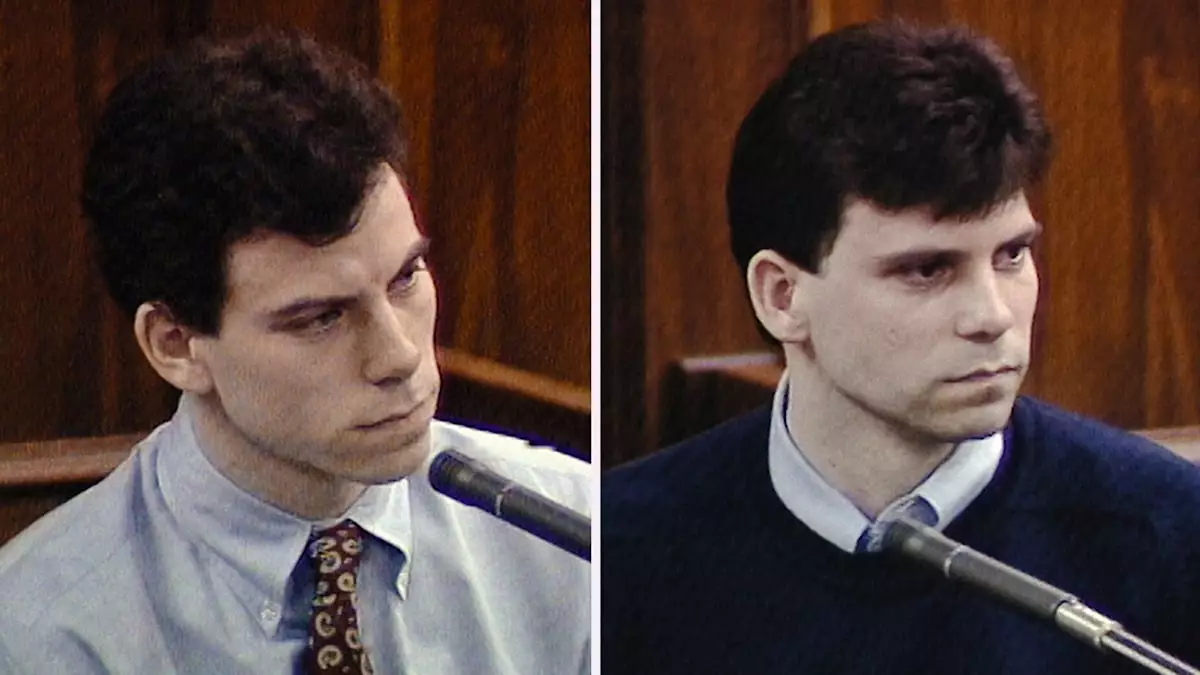The tumultuous saga of Lyle and Erik Menendez has fascinated, horrified, and polarized the public for over three decades. The murders of their parents, José and Kitty Menendez, on a fateful day in 1989 marked the beginning of a narrative thick with violence, trauma, and familial loyalty. The Menendez brothers, who were sentenced to life without the possibility of parole in 1996, have remained in prison for 34 years, yet new perspectives on their case are forcing society to re-evaluate the events that transpired and the complexities surrounding their motivations and actions.
As the media narrative shifts, driven in part by popular documentaries and series like the recent Netflix production, the Menendez brothers are now being viewed through a lens that calls for empathy rather than condemnation. Their defenders, including family members and legal representatives, have begun to vocalize their stance in favor of a resentencing and potential release.
Family Support: A Rallying Cry
On October 16, 2023, a remarkable press conference took place in Los Angeles, drawing significant attention to the brothers’ plight. Approximately 20 family members, including Ana María Beralt—niece of José Menendez—came together to advocate for Lyle and Erik’s release. This unprecedented gathering signified a united front within the Menendez family, underscoring a desperate desire for justice and empathy amidst long-standing familial turmoil.
The speeches delivered during the event emphasized a critical aspect of human experience: the complexity of trauma. Ana María articulated poignant insights regarding the emotional toll that the events of that day had on all involved, framing Lyle and Erik as not only perpetrators but also victims of a societal and systemic failure. “They would be victims of a system who wouldn’t hear them,” she asserted, reinforcing the idea that not all narratives are straightforward, nor should they be treated as such.
In the context of growing awareness regarding mental health, trauma, and the pervasive issues of abuse, the historical judgment of the Menendez brothers comes under scrutiny. As Ana María pointed out, insights into psychological trauma and post-traumatic stress disorder (PTSD) have evolved significantly since the time of their trials. Many now wonder if, had their case been evaluated in the present day, the judicial outcome would differ substantially.
Supporters argue that if contemporary understandings of psychological distress had been accessible to the jurors back in the ’90s, the brothers might have received a more compassionate response from both the justice system and the public. This shift in perception calls into question not only the legal rulings made during their trial but also our broader societal approach to justice, rehabilitation, and forgiveness.
Despite their grim circumstances, Lyle and Erik Menendez have reportedly sought to find purpose even within the confines of their prison cells. The family claims that the brothers have engaged in self-improvement efforts and have become mentors, supporting other inmates navigating their own hardships. Such narratives challenge the notion that incarceration solely serves punitive measures; they instead emphasize the potential for rehabilitation and personal growth.
Terry Beralt, José Menendez’s sister and the boys’ godmother, echoed these sentiments in her absence at the press conference. Her assurance of love and support for her nephews underscored the need for familial bonds and compassion in understanding their collective trauma. “I have seen great growth in them,” she remarked, calling attention to the positive strides made despite their confinement.
As the Menendez brothers stand on the precipice of a potential re-evaluation of their case, the collective voices of their supporters signal a critical measure of hope. The arrangement of this united family front reflects a yearning not only for personal justice but for a deeper understanding of the consequences of societal failure in addressing mental health and abuse.
The implications of this discussion reverberate well beyond the Menendez case; they compel us to confront uncomfortable truths about the justice system and society’s responsibility toward those who have suffered. As advocates share their stories and pleas for compassion, the Menendez brothers’ narrative transforms from one of mere crime to a rich tapestry of human complexity, inviting discourse on forgiveness, understanding, and the intricate web of familial relationships wrought with pain.
Perhaps it is time for the justice system to reconsider the legacy of this family and the stories that continue to unfold within the walls of imprisonment. In doing so, society may find an opportunity to redefine justice itself.


Leave a Reply